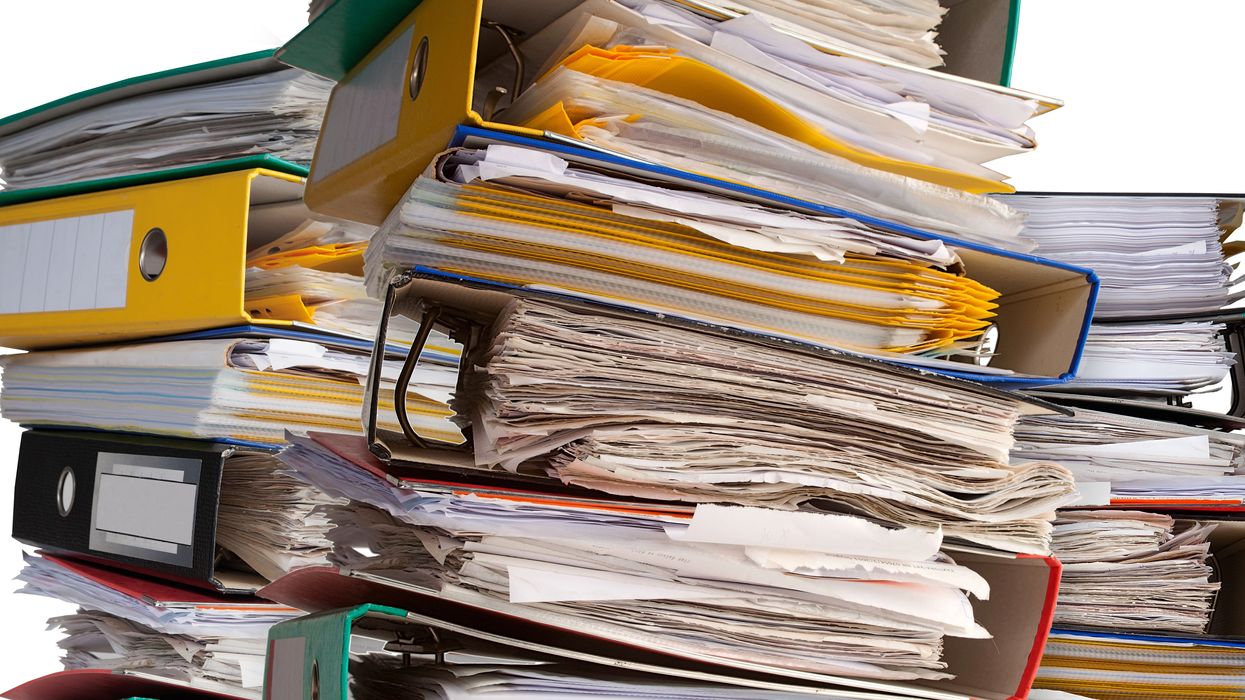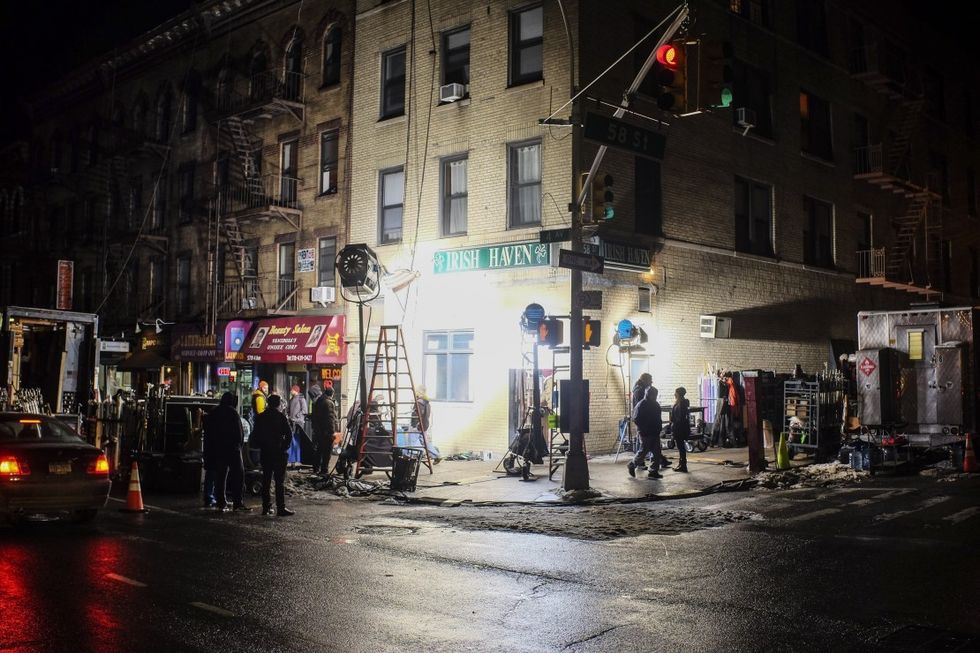 ll Ever Need in 99 Free Templates" width="1245" height="700" />
ll Ever Need in 99 Free Templates" width="1245" height="700" /> ll Ever Need in 99 Free Templates" width="1245" height="700" />
ll Ever Need in 99 Free Templates" width="1245" height="700" />
[Editor's Note: No Film School asked Adrijana Lazarevic to collect these 99 templates because of her expertise working with filmmakers at Filestage.io.]
No one really feels like doing paperwork, but let’s be honest: no good film comes without organization and planning.
That’s where templates can help you out. I work at a startup that creates software for filmmakers, and we see how busy you are every day, so we collected the most helpful templates, guides, and checklists out there to make your life a little easier.
They really help save time for what matters most: letting your creativity flow and producing breathtaking movies that won’t be forgotten. We've also covered the topic of free filmmaker documents before, as well as how you can use free templates for production reports.
The categories covered in this list are: Script Prep/Pre-production, Storyboard/Mood Board Templates, Shot List Templates, Script Breakdown Sheets, Budgeting, Accounting, Personnel/Cast Forms, Insurance Forms, Equipment Documents, Production/Shooting, and Music Releases.
Much of your planning happens well before production, including trying to get investors on board and starting to determine who your audience will be. Here are some templates for early steps, including a form for "optioning" a story that you want to produce, and a director's worksheet that lays out what you'd like to see happen in each scene.
Storyboarding is a cornerstone of the filmmaking process. A storyboard is a sequence of drawings that paint a picture of the your storyline, showing the structure of, and vision for, key scenes. We've also included a moodboard sheet for establishing the visual style of your film.
Organization is the key to a successful shoot. With the help of a shot list, you can easily arrange single shots within any given scene. You can determine, for example, the number of shots necessary to capture a particular action most effectively. Give it a try with one of these practical templates.
Here you can find helpful templates providing detailed descriptions of scenes, and the equipment and personnel assigned to each one. This way, you never lose sight, and can make sure everything is going according to plan.
While making a film, you or your producer have to keep a lot of things in mind and, before you know it, you can easily go over budget. This compilation of templates will help make sure that you don't lose sight of your financial statements. Some of them additionally provide examples of budgeting.

Once you have a budget, you have to actually do the accounting. Maintaining an overview of your finances and money flow is crucial. Check your financial resources by making notes of their movement. These forms will help you keep track.
From general contracts and agreements to crew templates, many of these forms are necessary to lay out a foundation for the business behind your film and get a good team on board.
Cast & Crew Lists
34. Crew Contact List - Filmsourcing
35. Cast and Crew List - Studiobinder
36. Cast List - Film Contracts
So you found the most suitable locations to portray your vision. Now, as with everything else, you need to do the paperwork and take care of business These templates have you covered. But also don't forget to read our primer on locations in the first place!

Keep in mind that life doesn’t always have a bright side. Especially when it comes to accidents or health problems. Therefore, always insure your crew, yourself and the equipment. These templates will get you started.
A movie is usually not made by a smartphone in one hand and a music player in the other. You need a whole bunch of stuff, plus, you have to deal with it. Cameras, recorders, lights, a whole set, and so on; all this has its price and needs to be paid attention to. These forms can help.
You've got your cast & crew, locations, and equipment and now you're onto the shoot: the time when staying organized is most crucial. To avoid slip-ups, interruptions or any other negative factors that make your life as director harder than it should be, use these forms. This list includes call sheets, your essential tool for communicating requirements with everyone on set.
Imagine movies without any music—unthinkable! Music is an essential part of a film experience. But, just as films have their patents and rights of use and enjoyment, sounds and music do too. And the legal use of music can be complicated. Here are some of the papers that help you do things right.
Filestage is a web app for filmmakers to share, review and approve videos efficiently. Clients and co-workers comment directly in your videos and design-frames accurately. All visual projects can be managed at ease.
From Your Site Articles
Working on great dialogue is hard enough. How you communicate complex emotions like sarcasm, snark, and even dictate to whom someone is talking to in a crowd of people is the next level stuff. How do you execute all of that?
Enter the screenwriter's best friend, a parenthetical.
Parentheticals or "wrylys" are the secret weapons to make sure your intentions on the page are reflected within the story.
Understanding how they work, and how to use them is critical to getting your best work on the page. So let's get into it!
What is a parenthetical?
Parentheticals are words written under a character's name in dialogue. They are often referred to as "wrylys" because they are adjectives used to describe how someone says a line or they are verbs that give an actor or actress some kind of action to do while they say the line.
These words appear in the middle of the parentheses.
They look like this:

Credit: Write Better Scripts
Programs like Final Draft you can tab over after you hit enter, or use tab+P as a shortcut.
Others, like Highland 2, require you just write inside the parentheses (like so).
If you're using Word or other software, parentheticals are left indented at 3.0" and the right margin is 3.5." Parenthetical remarks are NOT centered under the character name. They go just to the left.
As I mentioned above, you use these to describe an emotion or an action. You don't want to put them on every line of dialogue, that would be insane to read, and take away from the actor's interpretation. But you do want to put them in during specific circumstances where you really want to provide an emphasis on what's happening.
It helps the reader, and it helps the actor.
Again, John August has the standard rules and opinion on the subject here:
"Screenplays are meant to be read-by directors, producers, editors and countless other creative types-and it’s the screenwriter’s job to communicate crucial details about how the movie looks, sounds and feels. But that doesn’t mean you script every look, every turn, every smile. Screenwriting is the art of economy, and overusing parenthetical comments will not only break the flow of the dialogue, they’ll drive the reader crazy. If you find you’re using three or more per page, look at whether the dialogue itself is giving enough emotional information. If characters are obviously arguing in a scene, an (angrily) comment is probably unneeded, but you might need to highlight a line that is (sympathetic) or (withering) when it could read either way."
Screenwriting is hard. But to become a filmmaker, you need to learn script writing to master storytelling. We'll give you free lessons.
Many people come to No Film School because they want to get information about cameras, gear, and screenwriting. We’re aware that the luxury of attending film school is not available to most of the world, so we do our best to keep you all up to date on what’s out there and how you can shoot and create with your utmost potential when filmmaking.
But what’s at the root of all filmmaking?
Storytelling and Screenwriting.